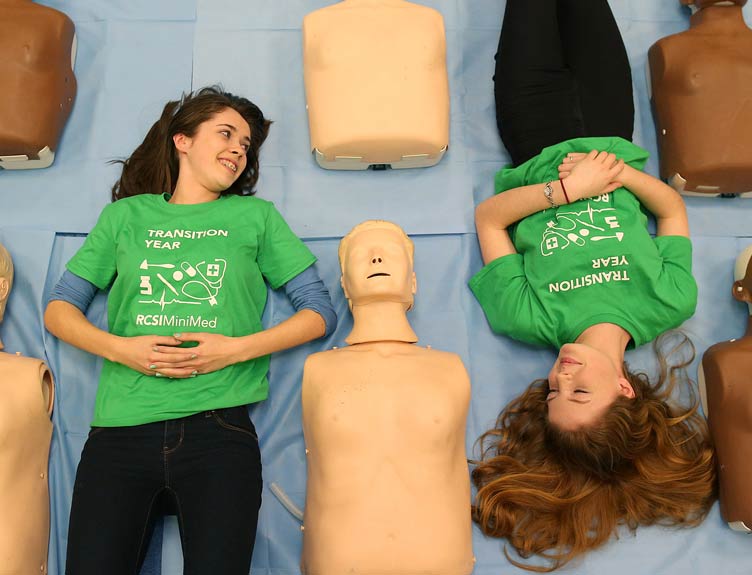Sports and exercise expert to warn of dangers of concussion

Preparation in medicine is the theme at this evening's instalment of the RCSI MiniMed Lecture Series.
Whether this is a medic preparing to undertake a 20,000 foot trek up the highest free-standing mountain in the world or one being prepared pitch side should any serious injuries take place, such as concussion, preparation is vital. Managing Concussion and wilderness medicine are on the agenda at these talks, free of charge to the public, which take place from 7-9pm at the RCSI, 123 St Stephen's Green, Dublin 2.
The opening lecture of the night, ‘Management of Concussion' will be delivered by Professor Michael G. Molloy, a board member of Faculty of Sports and Exercise Medicine of RCPI and RCSI. Concussion has become a contentious topic recently, mostly in rugby but also in all professional contact sports such as GAA (hurling and football), soccer, American football and even horse riding.
In his talk Prof. Molloy will discuss the many risks of concussion and what procedures should be followed if a person suffers a suspected concussion from the moment of impact. While concussion is finally getting the necessary attention it deserves in the elite levels of sport, where a medic makes the decision to remove a concussed individual from the field of play, this needs to be followed up at the grassroots of the game (i.e. schools and at amateur clubs) when a suspected concussion occurs.
Speaking ahead of his lecture, Prof. Molloy said, “Concussion is such an important issue and I cannot stress how important it is to be aware of the risk of concussion in every contact sport. Ideally there needs to be a professional trained in dealing with this condition on hand in case an individual is concussed. This person, like we see in professional sport, will take the decision to remove the afflicted person from the field of play, regardless of their insistence that they can play on, and put them on an appropriate recovery plan. Concussion can have some short-term side effects such as headache, nausea and dizziness but if a person suffers a number of concussions over their lifetime, this can lead to longer term effects such as impaired cognitive functions and even brain damage.”
The second RCSI MiniMed lecture of the night will be from the Dean of the RCSI & RCPI Faculty of Sports and Exercise Medicine, Dr Padraig Sheeran. He is also a Consultant in Paediatric Anaesthesia and Intensive Care in Dublin and medical director of a mountain climbing group, the Kilimanjaro Achievers, which has climbed the mountain four times in the past four years. During this talk, entitled 'Emergency Care in Remote Areas - Wilderness Medicine on Kilimanjaro', guests will get important information on preparation for climbing at altitude and going on long expeditions to remote areas. He will discuss the challenges of emergency medical care in the wilderness and treating people while on such an expedition.
Dr Sheeran said, “Preparation is everything when planning an expedition. Things such as physical preparation, equipment, logistics, medication and nutrition are vital to covering all eventualities on a climb. I will talk about the many challenges of emergency medical care in the wilderness and treating people who may become injured or ill while on such an expedition.”
At this lecture the public will also hear a story of triumph over adversary from Shane Dunphy (17) who successfully reached the summit of Kilimanjaro last year with Dr Sheeran's group on his second attempt, despite suffering from cystic fibrosis. Shane will close the talk with a short account of his experience. Shane trained for this journey under Padraig's supervision.
“Shane is a perfect example of someone who refuses to be labelled by the disease. This truly was a phenomenal achievement and I cannot speak highly enough of his attitude. Shane wants to be defined by what he does, not what he has and we look forward to sharing his story with the audience,” Dr Sheeran continued.



